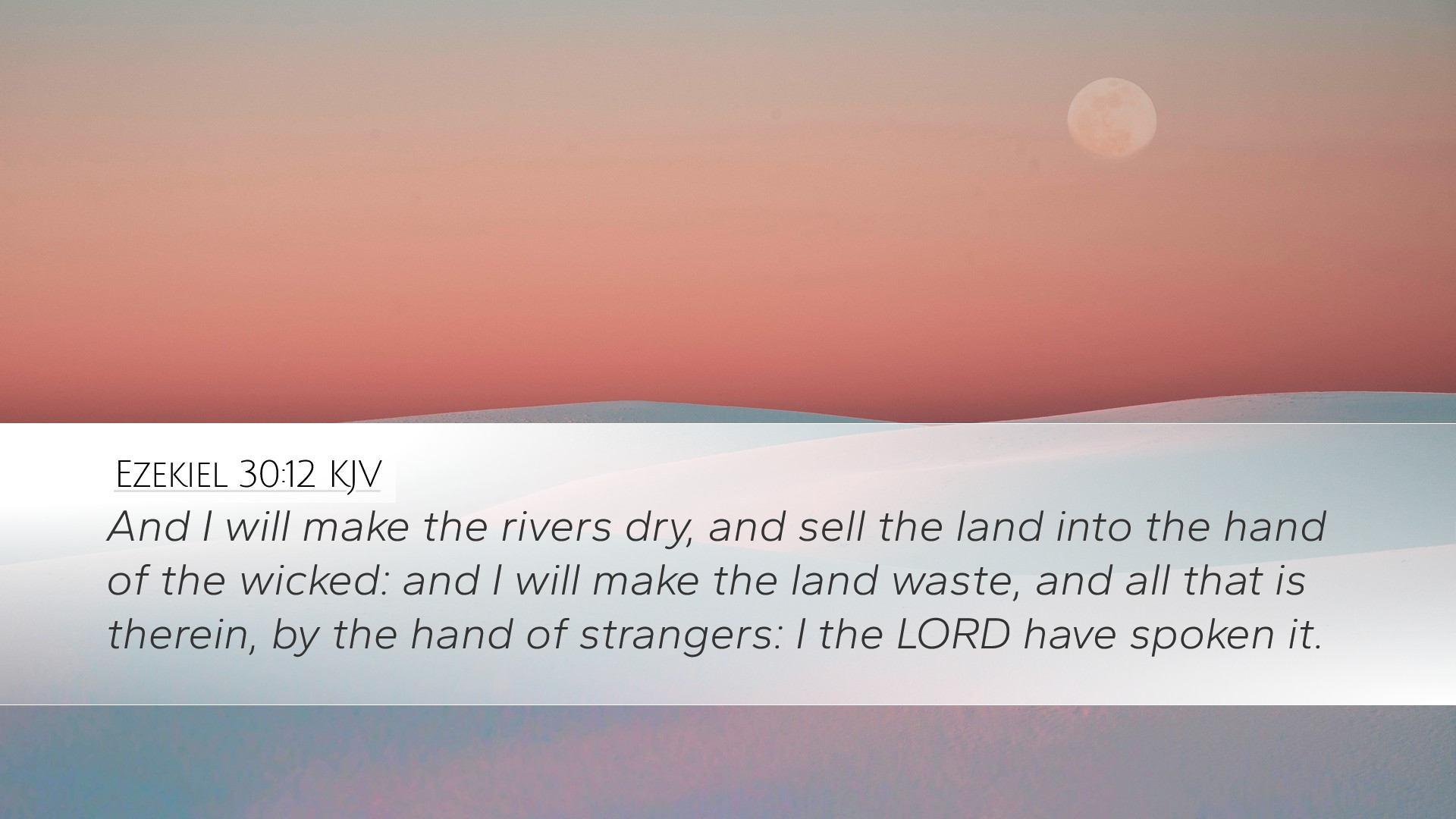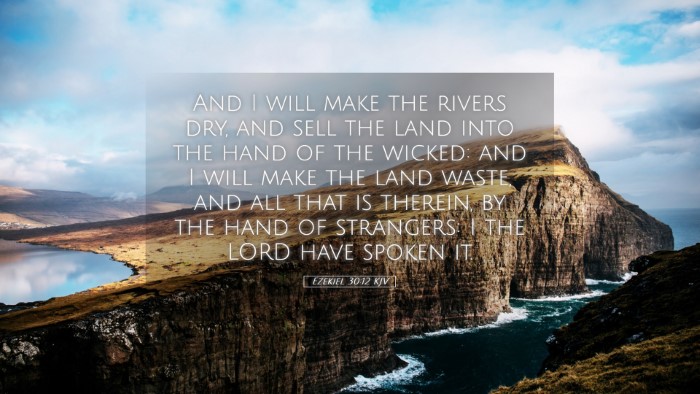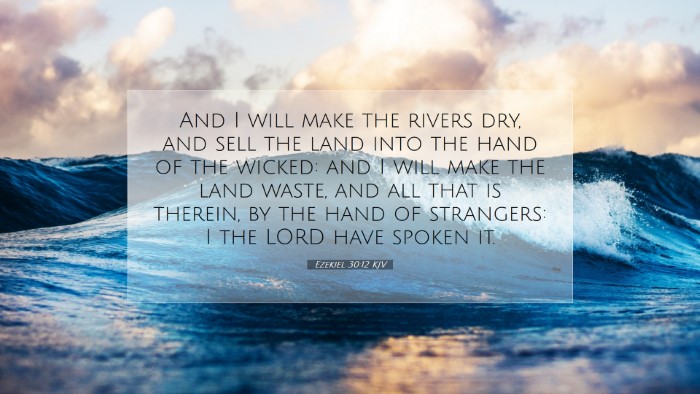Ezekiel 30:12 Commentary
Ezekiel 30:12 (NKJV): "I will also make the rivers dry, and sell the land into the hand of wicked; and I will make the land waste, and all that is in it, by the hand of strangers: I the Lord have spoken it."
Overview of the Verse
This verse is part of a prophetic declaration by Ezekiel concerning the impending judgment on Egypt and its allies. It encapsulates God's sovereign authority over nations and His ability to bring desolation. An examination of the verse reveals themes of divine judgment, desolation, and the ultimate authority of God over earthly nations.
Historical Context
The backdrop of this verse lies within the broader context of Ezekiel's prophecies concerning Egypt, one of Israel's historical adversaries. The prophetic judgments are set against the political and military stalemate that embroiled Egypt in the affairs of its neighboring nations. Understanding this context is pivotal for scholars and theologians, as it highlights both God's justice and the necessity of repentance for nations.
Commentary Insights
Matthew Henry's Commentary
Matthew Henry emphasizes that God, as the sovereign ruler, possesses the authority to impose judgment and bring desolation to nations that oppose Him. He interprets the "drying of rivers" as symbolic of the stripping away of sustenance and support that a nation once relied upon. This aligns with the theological understanding of God’s active participation in human history, where He raises and removes powers according to His divine purpose.
Albert Barnes' Notes on the Bible
Barnes expands on the phrase "sell the land into the hands of the wicked," suggesting that God would allow foreign nations to possess and oppress Egypt. This reflects a reversal of fortunes, where the once powerful and self-reliant nation would face humiliation and servitude. His insight brings forth the sobering reality that the elevation of nations is at the discretion of divine will, and their downfall serves as a testimony of God's judgment against sin.
Adam Clarke’s Commentary
Adam Clarke delves into the phrase "I will make the land waste," interpreting it as a divine verdict that extends beyond mere physical destruction. Clarke articulates that this wasteland symbolizes spiritual barrenness and a withdrawal of God's presence. The commentary forewarns of a collective national turning away from God, causing Him to hand over the leaders and people into the clutches of their enemies.
Theological Implications
The implications of this verse for modern contexts are profound. It serves as a warning to nations regarding the acceptance of immorality and the rejection of divine guidance. The drying up of rivers, as interpreted by Henry, can serve today as a metaphor for the loss of spiritual vitality, as societies dependent on worldly value systems face the inevitability of decay.
Divine Sovereignty
This verse underscores the concept of divine sovereignty, in which God's control over history and nations remains unchallenged. Both Henry and Clarke affirm that while nations may boast of their might, their ultimate fate rests in the hands of the Almighty. As contemporary believers and leaders reflect upon this, it manifests a call to humility, reminding them that righteousness is prerequisite for national blessing.
Judgment and Mercy
The harsh realities of judgment, as depicted in Ezekiel 30:12, are not devoid of God’s mercy. The prophetic voice often serves as both a warning and a call to repentance; thus, it invites reflection on corporate and national repentance. This verse can catalyze discussions among clergy on how to lead congregations in prayers for their nations, serving both as a plea for deliverance and a commitment to align with God's will.
Conclusion
In conclusion, Ezekiel 30:12 offers rich ground for theological reflection, providing insights into God's response to human sinfulness. It reinforces the need for nations, leaders, and individuals to seek God earnestly, as the consequences of neglect are dire. The combined insights from public domain commentaries underscore the importance of engaging with Scripture at both intellectual and spiritual dimensions, prompting reflection on our current realities in light of divine truth.


